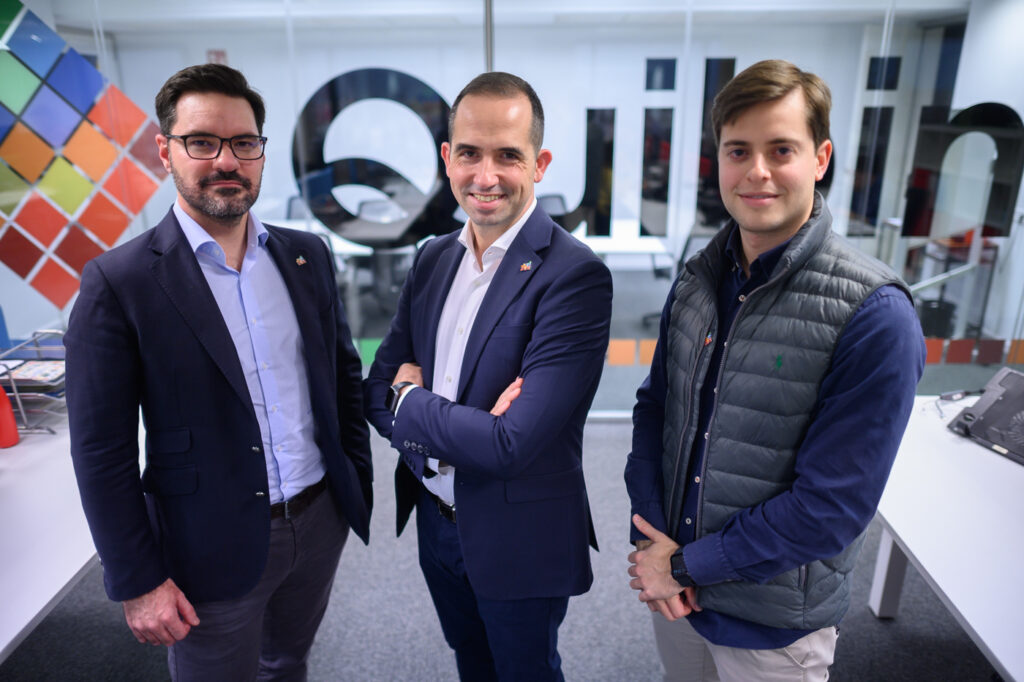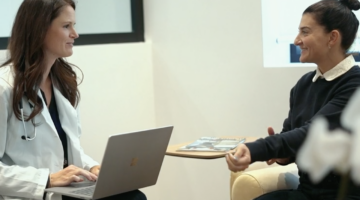
As the saying goes, a picture is worth 1,000 words. But when it comes to medical imaging, sometimes those pictures just don’t say enough. Startup Quibim uses artificial intelligence to glean more insights from medical images and it has raised $50 million to continue commercializing its technology and to ramp up R&D that could broaden its offerings.
“The main goal for the company is we would like to lead the category of imaging-based personalized medicine,” founder and CEO Ángel Alberich-Bayarri said.
The Quibim technology stems from Alberich-Bayarri’s experience as a biomedical engineer. He spent the early part of his career researching the use of imaging as a way to measure things. All of these images can have variations, he said. For each new patient, the algorithms he developed needed fine tuning. Artificial intelligence was not part of the picture.

Solving Healthcare’s Provider Data Problem Starts with Interoperability
Break down the silos. Take control of your provider data.
The technology of Valencia, Spain-based Quibim creates what Alberich-Bayarri describes as image quality harmonization. By applying AI, the analysis can focus on biological changes rather than the confounding factors. Automation of this analysis means there is no longer any need for fine tuning, he said. Furthermore, the technology automatically characterizes organs and tissues, identifying biomarkers indicative of disease.
“We were inspired by the fact that we can extract biomarkers from a blood sample,” Alberich-Bayarri said. “Why can’t we treat imaging data as a sample?”
The Quibim technology has received clearances from U.S. and European regulators as a medical device. At hospitals, clinicians can use the technology to guide disease detection and inform treatment decisions. So far, the company has regulatory clearances for applications of its technology to images of the prostate, the brain, and the liver. Quibim also has a platform technology that analyzes multi-omics data from clinical trials and real-world studies. Alberich-Bayarri said pharma companies can use this capability to identify likely responders to a drug, which guides clinical trial enrollment.
Hospitals pay a subscription fee based on the size of the institution and the number of exams performed. Hospital customers include Mass General Brigham. As Quibim expands its U.S. footprint, Alberich-Bayarri said the company is also working to secure payer reimbursement. Payment from Quibim’s agreements with biopharmaceutical companies comes in the form of milestone payments. In medical devices, Quibim has a collaboration with Philips, which integrates the startup’s AI models into its MRI scanners. Alberich-Bayarri said this is not an exclusive partnership and his company is looking to strike similar deals with other original equipment manufacturers.
Quibim initially sought FDA clearance for the company’s entire platform. The regulator told Alberich-Bayarri he needed to break out regulatory submissions by indication. But Alberich-Bayarri still envisions a broader use of the company’s imaging capabilities. Right now, imaging data are fragmented and it’s rare to have a full-body MRI, Alberich-Bayarri said. The company is building digital twins of organs, models that can be used for health monitoring. As the volume of imaging data grows, full-body imaging and AI models trained to analyze these images could be used to detect subtle tissue changes in the body, Alberich-Bayarri said. In this manner, imaging could be used at the beginning of a diagnosis rather than after symptoms show. The key is to be able to analyze the body as a whole.
“Diseases are not usually organ breakdowns, they are breakdowns of several things,” Alberich-Bayarri said. “In the future, I see imaging in prevention, when we are healthy in primary care, even when you don’t have symptoms.”
The merging of AI and personalized medicine is creating a new category of company based on drawing disease insights from medical images. One competitor to Quibim is Onc.AI, a digital health company focused on analyzing images to gain insights into tumor biology. Two years ago, the Bay Area-based startup raised $25 million in Series A financing.
Quibim raised $8 million in seed financing in 2020, just prior to seeking its first FDA clearance for prostate imaging. The Series A financing announced Tuesday was led by Asabys and Buenavista Equity Partners. The latest financing added UI Investissements and GoHub Ventures as new investors. Other participants include earlier investors Amadeus Capital Partners, APEX Ventures, Partech, Adara Ventures and Leadwind, as well as individual investors such as Tony Fadell, principal at Build Collective, and Jonathan Milner, the founder of Abcam.
Most of Quibim’s 89 employees are based in Europe. With the new capital, Alberich-Bayarri said his company will expand its U.S. presence, which is based in New York. The cash will also support the buildout of its sales team to continue striking deals with biopharma and medical device companies.
Photo by Quibim, S.L.








